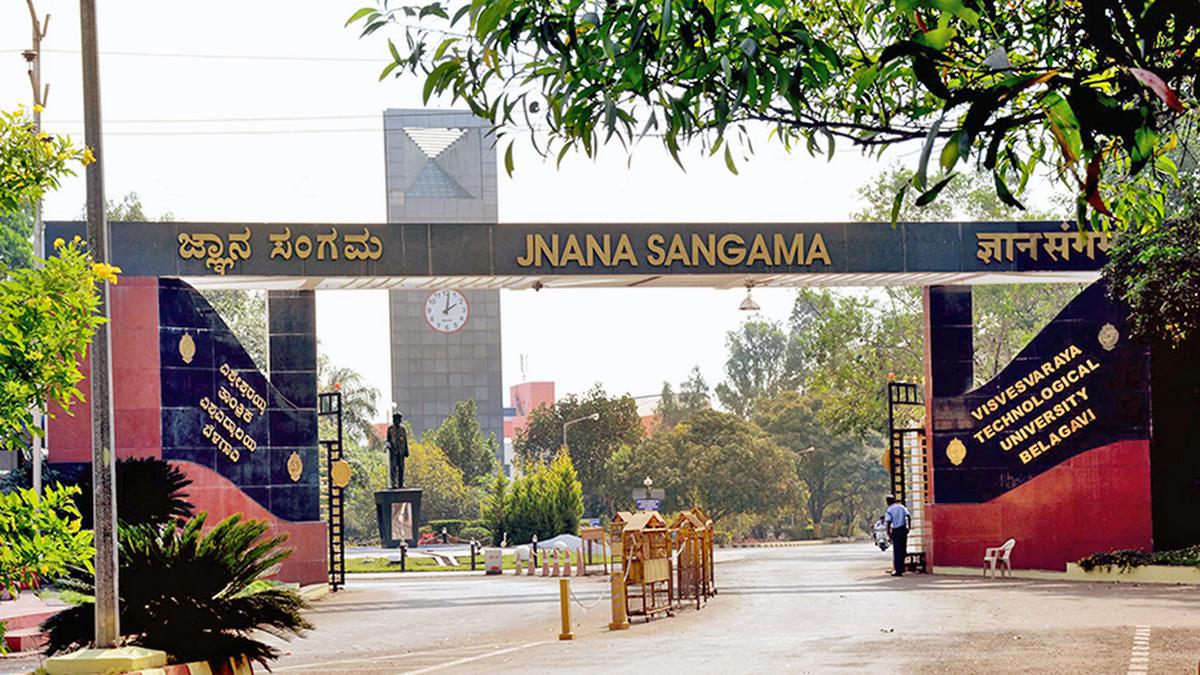
VTU to adopt industrial content in all engineering branches in colleges in Karnataka
The Hindu
The move comes as industries are facing shortage of required workforce due to lack of skill or knowledge despite technological advancements every day
To create industry-ready engineers, the Visvesvaraya Technological University (VTU) has decided to adopt industrial content in all engineering streams from the academic year 2023-24.
VTU has taken steps to review the engineering curriculum this year and conducted many meetings with various industrialists to get information about industrial requirements in the workforce. In addition, an expert team from VTU visited Indian Institute of Technology (IIT)-Madras and studied the new technologies in the curriculum of various engineering streams.
Now, the VTU is planning to bring in all these required technologies in the curriculum of all engineering streams from this academic year.
The move comes as industries are facing shortage of required workforce due to lack of skill or knowledge despite technological advancements every day. In the technical education field too, it has been acknowledged that engineering colleges are teaching outdated syllabi due to which students are facing the challenge of placement.
S. Vidyashankar, Vice-Chancellor of VTU, told The Hindu, “The reviewing of engineering curriculum is going on. We have already introduced industrial content for 1st and 2nd semesters of engineering courses. Now, we decided to extend this industrial content to the rest of the course. Shortly, we will release new industrial content for all the engineering streams.
“Today, entrepreneurs expect industry-ready engineers. Therefore, we decided to change the curriculum. Students should compulsorily study two subjects on the basis of this content. To provide appropriate skills to students, we also encourage collaboration with industries. Compared to all other technological universities in India, VTU’s students are the first choice of industries. Apart from all these, we have some plans to establish research innovation centres, incubation centres jointly with industries, and will appoint mentors and consultants to help students for research.”
Students are happy with the decision. Shreeya, a 3rd year engineering student in Bengaluru, said, “Adopting industrial content in the curriculum is a long-term demand of industries. There is lot of difference between industrial requirements and the syllabus taught in colleges. After completion of the course, many students have not been able to be employed because of lack of appropriate knowledge and skill required for the industries.”

“Writing, in general, is a very solitary process,” says Yauvanika Chopra, Associate Director at The New India Foundation (NIF), which, earlier this year, announced the 12th edition of its NIF Book Fellowships for research and scholarship about Indian history after Independence. While authors, in general, are built for it, it can still get very lonely, says Chopra, pointing out that the fellowship’s community support is as valuable as the monetary benefits it offers. “There is a solid community of NIF fellows, trustees, language experts, jury members, all of whom are incredibly competent,” she says. “They really help make authors feel supported from manuscript to publication, so you never feel like you’re struggling through isolation.”

Several principals of government and private schools in Delhi on Tuesday said the Directorate of Education (DoE) circular from a day earlier, directing schools to conduct classes in ‘hybrid’ mode, had caused confusion regarding day-to-day operations as they did not know how many students would return to school from Wednesday and how would teachers instruct in two modes — online and in person — at once. The DoE circular on Monday had also stated that the option to “exercise online mode of education, wherever available, shall vest with the students and their guardians”. Several schoolteachers also expressed confusion regarding the DoE order. A government schoolteacher said he was unsure of how to cope with the resumption of physical classes, given that the order directing government offices to ensure that 50% of the employees work from home is still in place. On Monday, the Commission for Air Quality Management in the National Capital Region and Adjoining Areas (CAQM) had, on the orders of the Supreme Court, directed schools in Delhi-NCR to shift classes to the hybrid mode, following which the DoE had issued the circular. The court had urged the Centre’s pollution watchdog to consider restarting physical classes due to many students missing out on the mid-day meals and lacking the necessary means to attend classes online. The CAQM had, on November 20, asked schools in Delhi-NCR to shift to the online mode of teaching.









